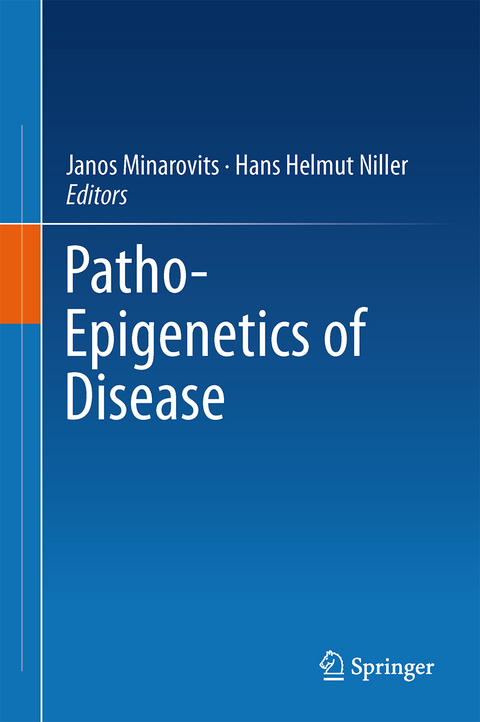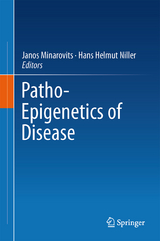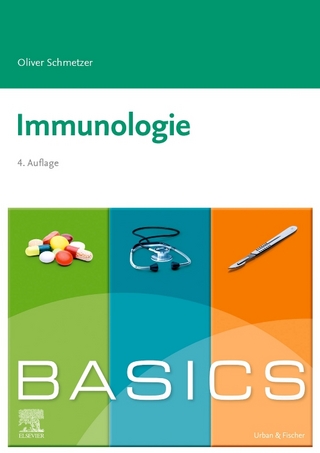Patho-Epigenetics of Disease
Springer-Verlag New York Inc.
978-1-4614-3344-6 (ISBN)
In multicellular organisms the establishment, maintenance, and programmed alterations of cell-type specific gene expression patterns are regulated by epigenetic mechanisms. Thus, epigenetic alterations (DNA methylation, DNA associated Polycomb-Trithorax protein complexes, histone modifications) ensure the unique transcriptional activity and phenotypic diversity of diploid cells that carry identical or nearly identical DNA sequences.
Because DNA methyltransferase I (DNMT1) associates with replication foci during S phase and prefers hemimethylated DNA as a substrate, DNMT1 ensures the clonal propagation of cytosine methylation patterns (maintenance methylation). Thus, DNA methylation may provide a memory function by helping progeny cells to “remember” their proper cellular identity.
An alternative system of epigenetic memory, the Polycomb and Trithorax groups of protein complexes, that may operate both independently from and in concert with DNA methylation, ensures the heritable regulation of gene expression via modification of histone tails.
The complex interplay of epigenetic regulatory mechanisms permits both the dynamic modulation of gene expression and the faithful transmission of gene expression patterns to each progeny cell upon division. These carefully orchestrated processes can go wrong, however, resulting in epigenetic reprogramming of the cells that may manifest in pathological changes, as it was first realized during the studies of epigenetic alterations in malignant tumors. By now it became a well established fact that not only genetic changes, but also the disruption of epigenetic regulation can result in carcinogenesis and tumor progression. Scientists working in other fields soon followed the pioneering work of cancer researchers, and revealed that epigenetic dysregulation forms the basis of a wide spectrum of humandiseases.
Epigenetic regulatory mechanisms.- Role of DNMT3B Mutations in the Pathogenesis of ICF Syndrome.- Dysfunction of the Methyl-Cpg Binding Protein Mecp2 in Rett Syndrome.- Epigenetic Alterations in Glioblastoma Multiforme.- Aberrant Epigenetic Regulation in Breast Cancer.- The Impact of Epigenetic Alterations on Diagnosis, Prediction and Therapy of Prostate Cancer.- Epigenetic Reprogramming in Lung Carcinomas.- Epigenetic changes in virus associated neoplasms.- Genetic and Epigenetic Determinants of Aggression.- Co-Regulation and Epigenetic Dysregulation in Schizophrenia and Bipolar Disorder.- Disruption of Epigenetic Mechanisms in Autoimmune Syndromes.- Imprinting Disorders.- Epigenetics of cardiovascular diseases.- Microbe-induced epigenetic alterations.
| Zusatzinfo | XIV, 466 p. |
|---|---|
| Verlagsort | New York, NY |
| Sprache | englisch |
| Maße | 155 x 235 mm |
| Themenwelt | Medizin / Pharmazie ► Medizinische Fachgebiete ► Mikrobiologie / Infektologie / Reisemedizin |
| Studium ► Querschnittsbereiche ► Infektiologie / Immunologie | |
| Naturwissenschaften ► Biologie ► Mikrobiologie / Immunologie | |
| ISBN-10 | 1-4614-3344-4 / 1461433444 |
| ISBN-13 | 978-1-4614-3344-6 / 9781461433446 |
| Zustand | Neuware |
| Haben Sie eine Frage zum Produkt? |
aus dem Bereich




